Capital Impact Partners’ Work Throughout 2020 Focused on Helping Communities Maintain Access to Essential Social Services Throughout the COVID-19 Pandemic, While Supporting Racial Justice and Equity for Our Communities
Ensuring that communities do not take steps back in their economic justice journey has and continues to drive our work to support disinvested communities, through new enterprises, programs, and lending initiatives
Arlington, VA (March 2, 2021) –2020 was a hard year for people nationwide and globally, especially for communities that were already struggling with inequity and lack of opportunities before the COVID-19 pandemic started. Amidst the health and economic impacts of the pandemic, racial violence and discrimination also continued unabated. As a result , communities saw companies, organizations, and jurisdictions taking initial steps toward ensuring equity and justice for Black, Indigenous, and people of color. While we are encouraged by the recognition of all sectors of society for the need for action, it must also be acknowledged that so much more remains to be done.
Capital Impact Partners worked throughout the year with our partners to support our communities’ ability to pivot in the face of the COVID-19 pandemic. Our focus has been on working with communities so that they can build real stability, prosperity, and equity. In particular, our alliance with CDC Small Business Finance is a means for us to address the economic and social needs of our communities from multiple angles. Through our programmatic work, our lending, and our partnerships, we have and continue to invest in disinvested communities to build economic mobility, resilience, equity, and opportunity.
In 2020, Capital Impact’s mission-driven work supported more than 424,000 community members and created or preserved nearly 5,300 permanent and construction jobs.
Our New Alliance with CDC Small Business Finance: Supporting Equitable Recovery from the COVID-19 Pandemic and Helping Communities Continue Toward Generational Wealth Creation
One of the new developments that will help us support communities to recover from the effects of the COVID-19 pandemic and augment for our communities is our alliance with CDC Small Business Finance. Announced in March 2020, our alliance with CDC Small Business Finance – the leading mission-based small business lender in the country – focuses on expanding economic empowerment and equitable wealth creation. This alliance provides CDC Small Business Finance and Capital Impact with the unique ability to deliver a full suite of lending products and programs that support community efforts to create strong, vibrant, and healthy places of opportunity.
Work has begun on three place-based pilots, in the Los Angeles, Detroit, and Washington, D.C. Metropolitan (DMV) areas. In each community, cross-organizational teams are listening and actively engaging with local community members to understand the problems that are unique to each region, while sharing tools, programs, and services that are strategically customized to address high-priority issues.
Confronting COVID-19 to Support Community Needs
CPCA COVID Response Loan Fund
In October 2020, Capital Impact Partners and The California Primary Care Association (CPCA) launched the CPCA COVID Response Loan Fund, a $25 million fund to support California’s community health centers (CHCs) with flexible financing to cover lost operating revenues and new costs resulting from treating patients who are unable to go to clinics. It is a vital need: CHCs serve one-in-six Californians (including many residents living below the poverty level), but since the beginning of the COVID-19 pandemic, CHCs have seen primary and preventive care visits drop by more than 50 percent, and then needed to ramp up service to support COVID-19 services and vaccination. Loans totaling $5.65 million were closed to eight community health centers in 2020. You can read more about how the Fund supported community health centers across California in the descriptions below. The CPCA COVID Response Loan Fund is made possible through the generous support of several key partners: Alliance Healthcare Foundation, The California Endowment, California Primary Care Association, The California Wellness Foundation, JPMorgan Chase, Richard W. Goldman Family Foundation, and UnitedHealth Group.
DMV Good Food Fund Innovative Response Fund: Preserving Food Security During the Pandemic
Capital Impact launched its DMV Good Food Fund (DMV GFF) Innovative Response Fund early this year, providing $100,000 in awards to key partners in order to allow local good food enterprises to reposition and pivot in response to the COVID-19 pandemic and its impacts on the regional food economy.
Expanding Empowerment and Sovereignty through the Co-op Innovation Award
For six years, Capital Impact has fostered innovation and expansion of the cooperative market through our Co-op Innovation Award. This year, our recipients are change agents expanding knowledge of and opportunities for wealth building and sovereignty through the co-op model, particularly in the face of COVID-19.
Ensuring Affordable Housing Options for Detroit Residents with Stay Midtown
Since 2016, Capital Impact and Midtown Detroit, Inc. (MDI) launched Stay Midtown, to address the housing supply gap for long-term residents living in Detroit’s rapidly redeveloping Midtown neighborhood. During the pandemic, maintaining housing became a priority for individuals and families living with low incomes. In 2020, we made additional rental and relocation assistance available to renters with MDI through the Stay Midtown program. MDI took the lead in assessing the needs of participating households to provide the proper level of assistance.
Supporting Entrepreneurs of Color with COVID-19 Relief Funds
Working with our Entrepreneurs of Color Fund partners at the Latino Economic Development Center (LEDC) and the Washington Area Community Investment Fund (Wacif), we helped to channel relief funds through them to support their small business borrowers in Washington, D.C.
Programmatic Support for Our Communities
The Equitable Development Initiative Continues to Expand Racial Equity in Real Estate Development
In 2020, we began the second cohort of our Equitable Development Initiative (EDI) in the Washington, D.C. area (DMV), which is providing training and mentorship for 17 real estate developers of color through online learning sessions. The fourth cohort of Detroit EDI began in early 2021.
Capital Impact started and continues the Equitable Development Initiative because we realized we needed to apply a racial equity lens to our work in order to meet our goals. Given the disproportionate impacts of COVID-19 on communities of color, as well as lasting inequities that developers of colors experience, it is now as important as ever that developers who represent their communities are engaged in shaping the future of communities nationwide.
Lending Highlights for the fourth quarter of 2020
Capital Impact’s $91 million in financing in 2020 spans several states, including California, Colorado, Michigan, Pennsylvania, Tennessee, Texas, and Washington, D.C. This effort helped increase access to quality health care for all, create new educational opportunities in communities of color, address affordable housing needs, and expand access to healthy food to help communities prosper.
Working within and becoming of our communities, our social impact in 2020 includes:
Scaling Affordable Housing
Capital Impact closed a $5 million revolving line of credit to ROC USA Capital to increase their capacity to finance and support more resident-owned communities nationwide, especially as they begin to expand into California. ROC USA Capital is a nonprofit CDFI and subsidiary of ROC USA, LLC, a nonprofit that helps residents form cooperative corporations to purchase their manufactured home communities from private owners and manage their neighborhoods in perpetuity.
Through cooperative homeownership, ROC USA supports economic opportunity for communities nationwide. Since its founding in 1982, Capital Impact Partners has used the cooperative model to build power for disinvested communities. Our focus has always been on how co-ops can better support communities living with low incomes. ROC USA was formed in 2008 by several leading nonprofit organizations (including Capital Impact).In 2020, and particularly in the face of the COVID-19 pandemic, Capital Impact expanded its efforts to foster cooperative development nationwide, engaging in programmatic initiatives, lending, and policy advocacy.
Capital Impact increased a $2.6 million loan that it previously made to Allied Housing as part of the Bay’s Future Fund by $2.1 million, expanding the original affordable housing project in Hayward, CA from 46 units of affordable housing to 125. At the end of 2019, we provided $2.6 million as part of a $5 million loan with the Corporation for Supportive Housing (CSH), to support Allied Housing and Abode Services to acquire a three-acre property in Hayward, CA. The funding will allow for the construction of a 125-unit supportive housing facility, which will focus on formerly homeless persons with serious mental illness or other disabilities. This project aims to build community among the residents, with community rooms and outdoor recreation space as some of the amenities. Importantly, the supportive housing will provide access to a broad array of services, including vocational and employment assistance, primary health and dental services referrals, and comprehensive service plans.
Capital Impact closed a $5 million revolving line of credit to The NHP Foundation, which it will use to fund predevelopment expenses on four affordable housing projects in Houston, TX. NHPF will partner with local community development organizations to create more than 400 affordable rental units. The NHP Foundation is a national nonprofit affordable housing developer that preserves and creates service-enriched housing. NHPF owns more than 7,900 affordable rental units located throughout 16 states, including Texas, offering safe, clean affordable housing with services to families, seniors, single-room occupancy residents, veterans, the formerly homeless, and people living with disabilities.
Capital Impact closed a $300,000 loan to Develop Detroit, Inc. (DDI) that supported the acquisition and preservation of The Lawton Apartments, an existing 38-unit naturally affordable (i.e. unsubsidized) apartment complex in Detroit. DDI used their existing syndicated line of credit, of which Capital Impact is a 1/5th partner, to finalize this deal. All of the tenants in the apartment complex earn 30-50 percent of the area median income (AMI), providing a lifeline of affordable housing in a city that has seen rapid development and rising housing costs
Capital Impact closed on a $2.98 million loan to Kercheval East LLC, a special purpose entity operated by Restoric Properties, which will enable the developers to finance the renovation of two existing, vacant, and blighted buildings and the construction of one new building on a vacant lot, creating a mixed-use development in the West Village neighborhood of Detroit. This development will include 15 new apartments, and 3,336-square-feet of commercial space likely to be occupied by a local entrepreneur. Three of the 1-bedroom units will be affordable at 50 percent AMI, five will be affordable at 80 percent AMI, and the remaining will be affordable at 120 percent AMI, adding affordable residential space to the highly sought after West Village neighborhood.
Increasing Access to Health Care
Through the $25 million CPCA COVID Response Loan Fund launched by Capital Impact Partners and The California Primary Care Association (CPCA), loans totaling $5.65 million were closed to eight community health centers. All of the borrowers have sites in Medically Underserved Areas and Health Professional Shortages Areas. The CHCs that received loans through this Fund are Herald Christian Health Center, Samahan Health Centers, Queenscare Health Centers, South Central Family Health Center, St. John’s Well Child & Family Center, Tri-State Community Healthcare Center, Universal Community Health Center, and West Oakland Health Council.
Funded through the CPCA Ventures Loan Fund (Capital Impact’s longest-running health care lending initiative), Capital Impact closed a $1 million loan to Bay Area Community Health (BACH) for working capital needs. BACH was formed in 2020 following a merger between Foothill Community Health Center (Foothill) and Tri-City Community Health Center (Tri-City), an existing Capital Impact borrower. The merger creates the largest health center in the San Francisco Bay Area and among the largest in the state, serving nearly 100,000 unique patients annually, and providing a large array of health care services including medical, dental, behavioral health, and optometry. Almost the entire patient population lives with low incomes.
Capital Impact closed a $1 million loan to Clinicas de Salud del Pueblo, a Federally Qualified Health Center (FQHC) on California’s border with Mexico. The loan, made through Capital Impact’s CPCA Ventures Loan Fund, enabled Clinicas to pay for equipment, upgrade their Calexico and El Centro facilities, expand capacity, and provide new services. This financing will support a 72,000-square-foot renovation/expansion project. A previous borrower with Capital Impact, Clinicas’ work is high-impact: its 12 sites serve 57,000 patients who work in migrant and seasonal agriculture, and the majority of its patients earn low incomes.
Community Medical Wellness Centers USA (CMWC) received a $1 million loan from Capital Impact to fund tenant improvements and associated costs for newly leased suites at the clinic’s location financed through the CPCA Ventures Loan Fund. As an FQHC in Long Beach, CA, CMWC provides primary care, mental health, case management, HIV prevention and support, and health education services. The added 3,397 square feet in this location will allow for 13 additional exam rooms.
Capital Impact provided a $5.8 million loan to La Clinica Tepeyac in Denver, CO as part of an $18 million New Markets Tax Credit transaction, which will finance the ground-up construction of a four-story mixed-use development. The ground floor will contain a health center and healthy food retailer, while the upper floors will provide 150 units of affordable housing. La Clinica Tepeyac, an FQHC, is one of a few culturally competent providers of health care to the uninsured and underinsured immigrant community in Denver. It is known as a safe space; a large portion of its clients are undocumented, and the majority primarily speak Spanish. The new space will help La Clinica expand its client base from 4,000 to 8,000 over seven years.
Expanding Healthy Food Access
With $3.4 million in financing through Michigan Good Food Fund loans from Capital Impact and a grant from the Michigan Economic Development Corporation, a 32,262-square-foot former department store in Port Huron, MI will soon become a downtown grocery store. Port Huron’s historic Woolworth’s building will be the site of the second Country Style Marketplace. It was purchased by Michele Jones and Steve Fernandez in 2018, with a groundbreaking this past October. The vacant building is being transformed into 12,000 sq. ft. of market space on the first floor, with three new office spaces and a residential loft on the second floor. As downtown Port Huron is a food desert, the grocery store will provide healthy food options to the area and will create 30-40 new jobs.
Providing High-Quality Education
Capital Impact closed a $3.8 million leverage loan to the Detroit Achievement Academy Foundation as part of a $12.5 million New Markets Tax Credit (NMTC) transaction to construct a new campus for Detroit Achievement Academy (DAA). IFF and Civic Builders also participated in the transaction, with Chase as the equity partner. The majority of DAA’s student population lives with low incomes, and more than 90 percent are African American. DAA is one of Detroit’s best performing charter schools; as a result, it receives far more applications annually than it has available seats. This loan will allow the school to increase its capacity from 185 students to 470 at full enrollment.
Capital Impact closed a $4.25 million loan to refinance the NMTC leverage debt on the Wissahickon Charter School’s Awbury Campus in Philadelphia, PA. Capital Impact partnered with Reinvestment Fund, which made an identical $4.25 million loan to complete the refinancing. Both loans were made as part of the CDFI Bond Guarantee Program (“BGP”). Founded in 2001, Wissahickon Charter School operates two K-8 campuses serving approximately 972 students in Philadelphia, PA. With a majority of its students living with low incomes and a quarter of its students living with disabilities, its holistic educational philosophy seeks to foster a community of learning with an environmental focus that stimulates intellectual, social, and character development.
About Capital Impact Partners
Through capital and commitment, Capital Impact Partners helps people build communities of opportunity that break barriers to success. Through mission-driven financing, social innovation programs, capacity building, and impact investing, we work to champion key issues of equity and social and economic justice. Our commitment to community focuses on ensuring that individuals with low-to-moderate incomes have access to quality health care and education, healthy foods, affordable housing, and the ability to age with dignity.
A nonprofit Community Development Financial Institution, Capital Impact has disbursed more than $2.5 billion since 1982 to ensure that individuals with low-to-moderate incomes have access to quality health care and education, healthy foods, affordable housing, and the ability to age with dignity. Our leadership in delivering financial and social impact has resulted in Capital Impact being rated by S&P Global and recognized by Aeris for our performance. Headquartered in Arlington, VA, Capital Impact Partners operates nationally, with local offices in Detroit, MI, New York, NY, and Oakland, CA. Learn more at www.capitalimpact.org.







